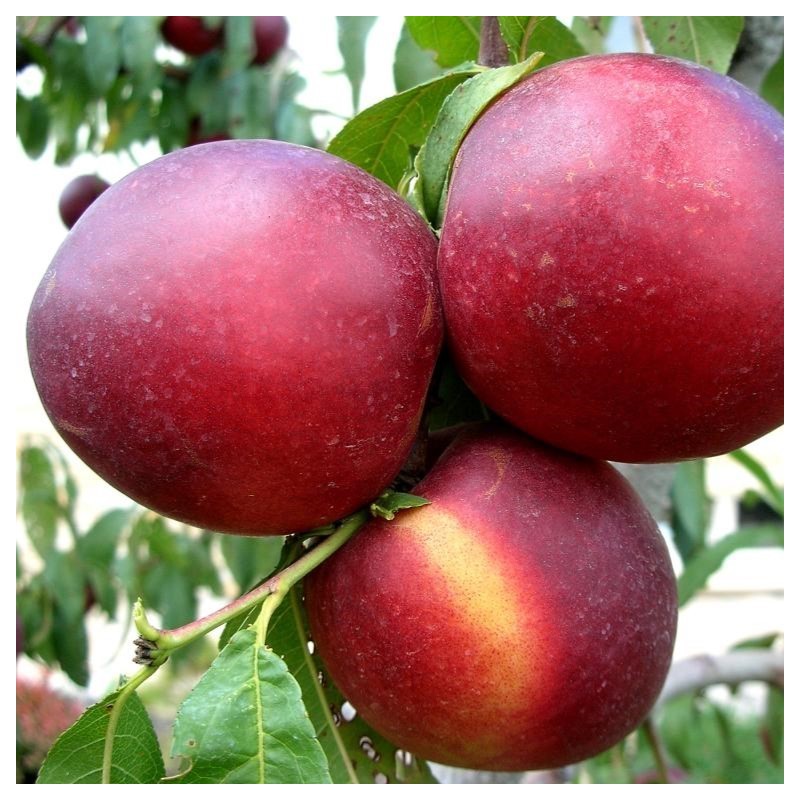The peach (Prunus persica) is a deciduous tree that bears edible juicy fruits with various characteristics. Most are simply called peaches, while the glossy-skinned, non-fuzzy varieties are called nectarines. Though from the same species, they are regarded commercially as different fruits. The tree is regarded as handsome and is planted in gardens for its springtime blooms in addition to fruit production. It is relatively short lived, usually not exceeding twenty years of age. Peaches were first domesticated and cultivated in China during the Neolithic period. The specific name persica refers to its widespread cultivation in Persia (modern-day Iran), from where it was transplanted to Europe. It belongs to the genus Prunus, which also includes the cherry, apricot, almond, and plum, and which is part of the rose family. The peach is very popular; only the apple and pear have higher production amounts for temperate fruits. In 2023, China produced 65% of the world total of peaches and nectarines. Other leading countries, such as Spain, Turkey, Italy, the U.S., and Iran lag far behind China, with none producing more than 5% of the world total. The fruit is regarded as a symbol of longevity in several East Asian cultures.

